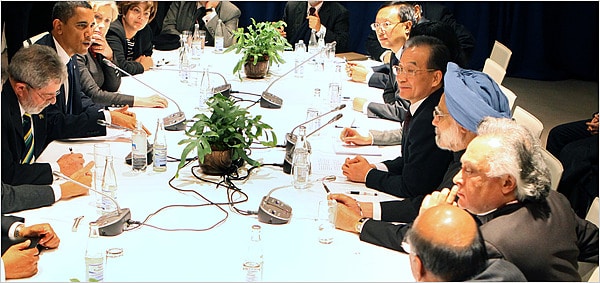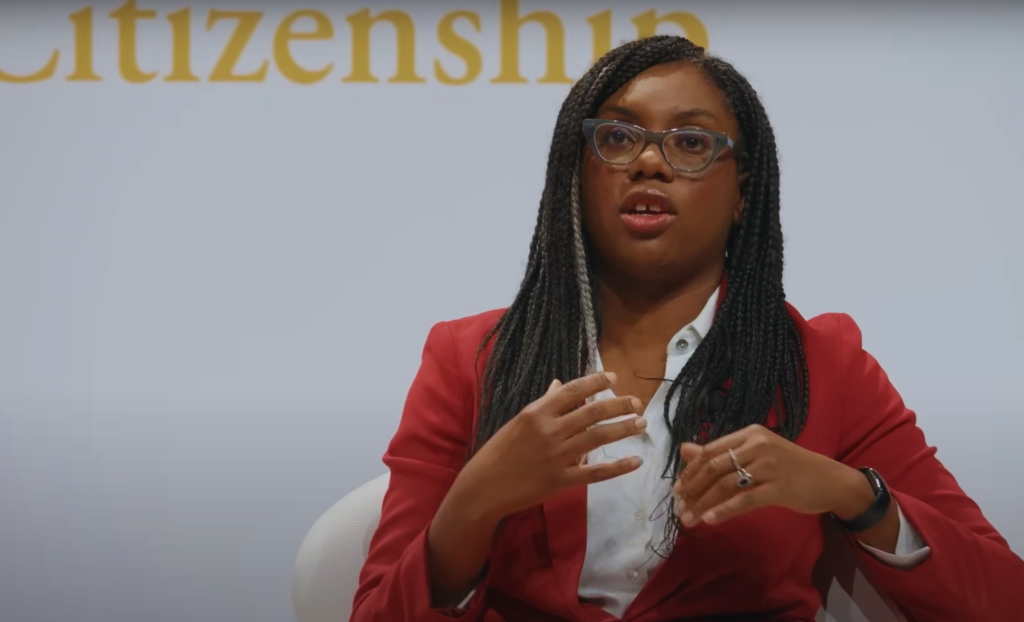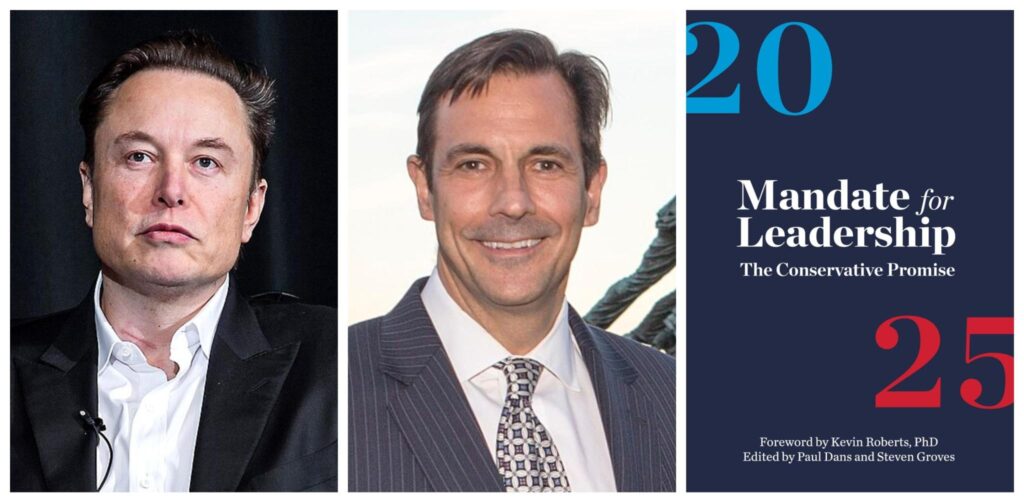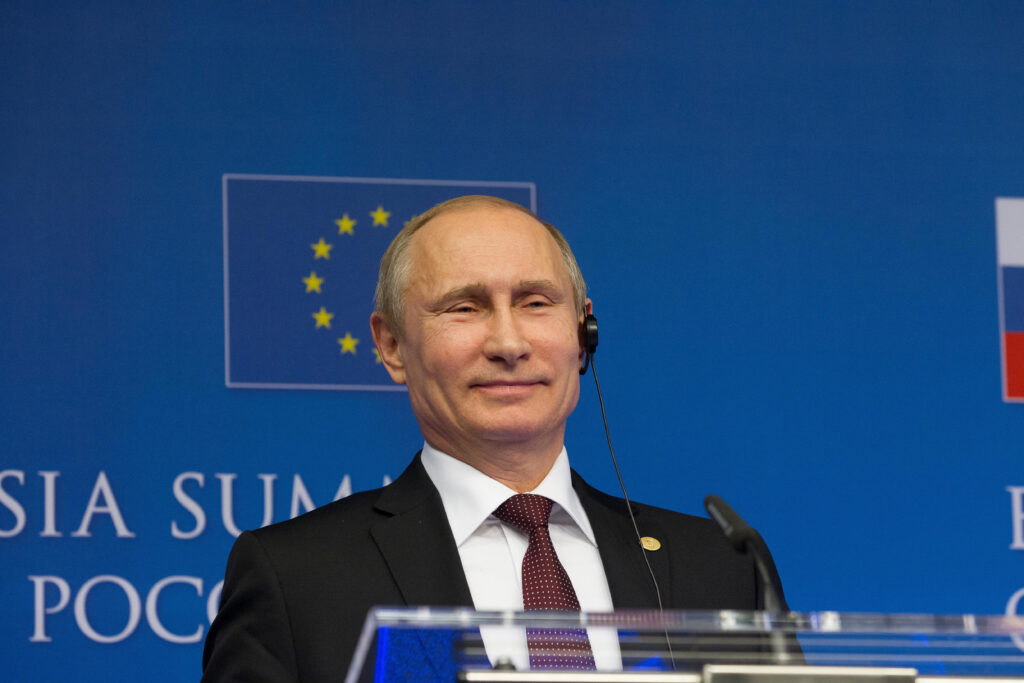COPENHAGEN – There is, finally, a Copenhagen Accord – a deal that is so unfair, so unambitious and so devoid of commitment that the countries of the world could agree only to “take note” of its existence. There was no hope whatever that everyone would actually “approve.”
As reported through the night, U.S. President Barack Obama announced a modestly celebrated accord late last evening, taking fulsome credit for having saved the day in a private negotiation with China, India, Brazil an South Africa – what Bill McKibben later described as “a league of super-polluters.”
But this back-room resolution – greeted with resignation rather than delight – was not destined to survive the night.
Lumumba Di-Aping, chief negotiator for the G77 group of 130 developing countries, snarled: “This deal will definitely result in massive devastation in Africa and small island states. It has the lowest level of ambition you can imagine. It’s nothing short of climate change scepticism in action.
“It locks countries into a cycle of poverty for ever. Obama has eliminated any difference between him and Bush.”
With Obama and his personal press corps safe on a plane back to an East Coast snow storm, the deal collapsed, leaving United Nations Secretary General Ban Ki Moon to spend the night begging, brokering and arm-twisting until, around 10:30 a.m. Central European time, the 193 assembled countries in the 15th Conference of the Parties to the United Nations Framework Convention on Climate Change agreed: “That COP15 takes note of the Copenhagen Accord.”
“Takes note.” They’ve heard about it. They’ve seen a draft. They understand that it happened while they were in the same, sprawling building.
If you ask, “What the hell does that mean?” Secretary-General Ban will tell you (as he told a hastily called press conference) that it’s a good thing, that it’s “an essential first step.” And German Chancellor Angela Merkel said in the night, even before the final “taking note,” that this very small step was better than nothing.
As for a way forward, Robert C. Orr, Assistant Secretary-General for Policy Coordination and Strategic Planning, told the news conference that the UNFCCC will now try to design a process through which countries “can associate themselves with the agreement.” Not sign it, necessarily. Certainly not be bound by its vacuous contents, but presumably take note in a slightly more formal way.
None of this is being warmly received in the activist community. Kim Carstensen, Leader of
WWF’s Global Climate Initiative, said, “What we have after two years of negotiation is a half-baked text of
unclear substance. With the possible exceptions of US legislation and the beginnings of financial flows, none of the political obstacles to effective climate action have been solved.”
And did we mention that the U.S. legislation has not actually passed – and isn’t likely to in its current form, if at all.
More quotable than Carstensen was Guardian columnist George Monbiot who, thanks to the stunning chaos that has marked the last several days of this conference, was never even allowed through the door. He described the process like this:
“First they put the planet in square brackets, now they have deleted it from the text. At the end it was no longer about saving the biosphere: it was just a matter of saving face. As the talks melted down, everything that might have made a new treaty worthwhile was scratched out. Any deal would do, as long as the negotiators could pretend they have achieved something. A clearer and less destructive treaty than the text that emerged would be a sheaf of blank paper, which every negotiating party solemnly sits down to sign.”
There are, potentially, some glimmers of hope. The countries have committed to providing $30 billion over the next three years in financing to help the developing world reduce or contain emissions. Two-thirds of that money is already committed and, if any of this can be taken seriously, the U.S. is on record as saying that it will be a willing party to expanding that spending to $100 billion a year by 2020. It’s a start.
But “Hopenhagen” was supposed to be a finish – a triumphant culmination of a process that began in Rio de Janeiro in 1992, that took formal shape in Kyoto in 1997, that redoubled its energy in Bali in 2007 and that, this year, was to result in a fair, ambitious and binding agreement for all the world’s countries to lower their emissions.
Against that shattered expectation, close to 100,000 politicians, bureaucrats, negotiators, business lobbyists and climate activists will leave this city in the next 24 hours, most of them deeply disappointed. The largest component of that crowd was the last, the enironmentalists who came to Copenhagen to show their support for a solid deal. For their trouble, and their enthusiasm, they were banned from the building for the critical last three days.
So, as the UN might say: Take note. It’s an El Nino year. Expect temperatures – and tempers – to rise. Expect political leaders the world over the learn – the hard way – that the optimsitic notion that is “Copenhagen” is not over.
Subscribe to our newsletter
Stay up to date with DeSmog news and alerts







